
Vicki Cramer-Blair
LicAc, mATCM, mANP
A Practitioner of Traditional Chinese Medicine (TCM) I use an integrated approach, both TCM and 5 elements. An Acupuncturist, treating general health concerns. (College of Naturopathic Medicine, CNM London). Brain/Scalp Acupuncturist, treating Parkinson’s, stroke, and dementia patients. (studied under the guidance of Professor Dr. T. J Wang at the London Academy of Scalp Acupuncture). A Naturopath, offering lifestyle advice and nutrition tips. (CNM London) A Facial Rejuvenation specialist using acupuncture for non-surgical facelifts and for scar therapy. (studied under the direction of Dr. John Tsagaris) I am also a qualified Indian Head Massage therapist.
Getting to the point of
traditional acupuncture
What does acupuncture help with?
-
Arthritis
Acupuncture a widely recognized complementary therapy for managing arthritis...
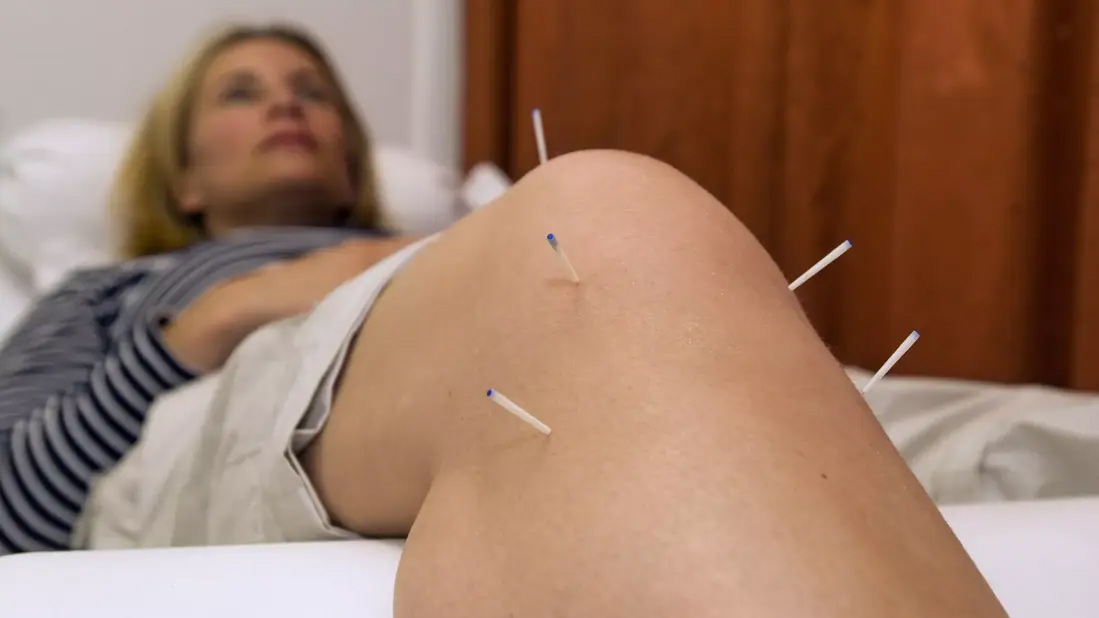
Acupuncture has emerged as a widely recognized complementary therapy for managing arthritis, offering relief to millions of individuals worldwide grappling with the debilitating effects of this chronic condition. Arthritis encompasses a spectrum of disorders characterized by joint inflammation, stiffness, and pain, with osteoarthritis and rheumatoid arthritis being the most prevalent forms. Traditional Chinese medicine (TCM) views arthritis as a manifestation of imbalances in the body's vital energy, or qi, along specific pathways known as meridians. Acupuncture, a cornerstone of TCM, aims to restore the harmonious flow of qi by inserting thin needles into specific points along these meridians, stimulating the body's natural healing response.
For individuals with arthritis, acupuncture holds promise as a non-invasive, drug-free approach to pain management and symptom relief. Research indicates that acupuncture may help alleviate arthritis-related pain by triggering the release of endorphins, the body's natural painkillers, and modulating neurotransmitters involved in pain perception. Moreover, acupuncture's anti-inflammatory effects may help reduce swelling and inflammation in arthritic joints, promoting improved mobility and function. Many individuals with arthritis report significant improvements in pain, stiffness, and overall quality of life following acupuncture treatment, often complementing conventional therapies such as medication and physical therapy.
While scientific evidence supporting acupuncture's efficacy for arthritis continues to grow, it's essential to approach it as part of a holistic treatment plan tailored to individual needs. Collaborating with a qualified acupuncturist who understands the complexities of arthritis and its management can optimize the benefits of acupuncture while ensuring safety and effectiveness. Additionally, integrating acupuncture with other modalities such as dietary modifications, exercise, and stress management techniques can enhance overall well-being and help individuals with arthritis regain control over their health and daily lives. As research advances and our understanding of acupuncture's mechanisms deepens, it is poised to play an increasingly vital role in the multidisciplinary approach to managing arthritis, offering hope and relief to those seeking alternative avenues for symptom relief and improved quality of life.
-
Respiratory/lungs
Acupuncture, an ancient Chinese healing technique, has garnered attention...

Acupuncture, an ancient Chinese healing technique, has garnered attention for its potential benefits in managing respiratory illnesses. This traditional practice involves inserting thin needles into specific points on the body to stimulate energy flow, or Qi, and restore balance within the body. While the exact mechanisms behind acupuncture's effects on respiratory conditions are still being researched, many believe that it can help alleviate symptoms and improve overall respiratory function.
Respiratory illnesses encompass a wide range of conditions, including asthma, bronchitis, sinusitis, and allergies, all of which can cause significant discomfort and interfere with daily life. Acupuncture is often used as a complementary therapy alongside conventional treatments to address both the symptoms and underlying causes of these conditions. By targeting specific acupuncture points related to the lungs, sinuses, and immune system, acupuncture may help reduce inflammation, promote relaxation, and enhance the body's ability to fight off infections.
Studies investigating the efficacy of acupuncture for respiratory illnesses have shown promising results. Research suggests that acupuncture may help improve lung function, reduce the frequency and severity of asthma attacks, alleviate sinus congestion, and enhance overall respiratory health. Additionally, acupuncture's holistic approach addresses not only the physical symptoms but also the emotional and psychological factors that can exacerbate respiratory conditions, such as stress and anxiety.
Despite the growing body of evidence supporting acupuncture's potential benefits for respiratory illnesses, it's essential to approach it as part of a comprehensive treatment plan. Individuals considering acupuncture should consult with a qualified practitioner who can tailor the treatment to their specific needs and medical history. While acupuncture may not be a standalone solution for respiratory conditions, it can serve as a valuable tool in promoting respiratory wellness and improving quality of life.
-
Musculoskeletal Issues
Musculoskeletal Issues shown to be effectivly treated by acupuncture...
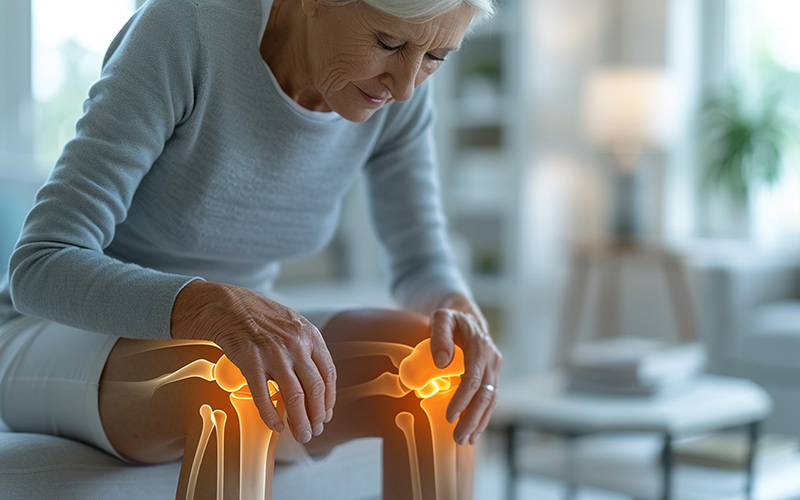
Acupuncture, an ancient practice rooted in Traditional Chinese Medicine (TCM), has gained recognition and popularity in modern healthcare for its effectiveness in addressing various musculoskeletal issues. Utilizing fine needles inserted into specific points along the body's meridian pathways, acupuncture aims to restore balance and harmony to the body's energy flow, known as qi.
For individuals suffering from musculoskeletal problems such as chronic back pain, arthritis, or sports injuries, acupuncture offers a holistic approach to pain management and healing. By stimulating specific acupoints, acupuncture can help alleviate pain, reduce inflammation, and promote the body's natural healing mechanisms. This therapy targets not only the symptoms but also the underlying imbalances contributing to the discomfort, offering long-term relief and improved mobility.
One of the key benefits of acupuncture for musculoskeletal issues is its ability to trigger the release of endorphins and other neurotransmitters, which act as natural painkillers and mood regulators. This can significantly reduce pain perception and promote relaxation, allowing muscles to unwind and facilitating tissue repair. Additionally, acupuncture may enhance blood circulation to the affected areas, delivering oxygen and nutrients essential for healing while removing metabolic waste products.
Moreover, acupuncture treatments are often tailored to the individual's specific condition, taking into account factors such as the location and severity of pain, overall health status, and underlying causes. This personalized approach ensures that each session addresses the unique needs of the patient, maximizing the therapeutic benefits. Combined with lifestyle modifications, such as exercise, stress management techniques, and dietary adjustments, acupuncture can offer a comprehensive solution for managing musculoskeletal problems and improving overall well-being. As a non-invasive and drug-free therapy, acupuncture presents a safe and effective alternative or complement to conventional treatments for musculoskeletal issues, empowering individuals to take an active role in their health and recovery.
-
Circulation and Heart
Acupuncture's efficacy in treating heart and circulation diseases is...
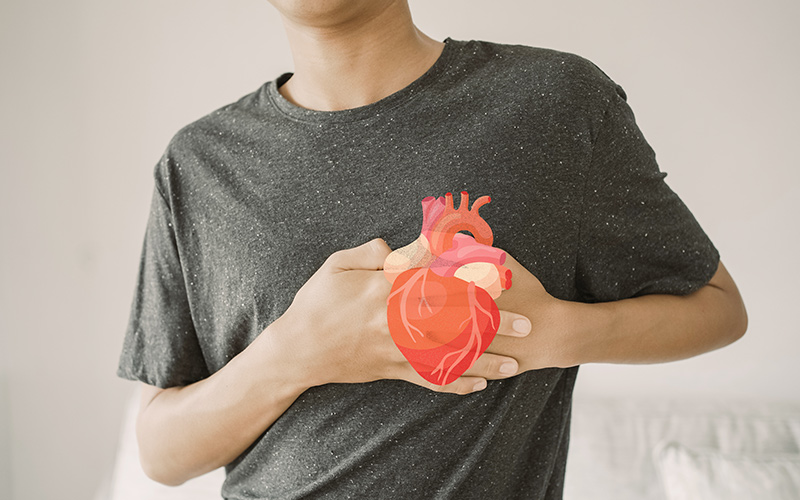
Acupuncture's efficacy in treating heart and circulation diseases is a topic of ongoing research and debate within the medical community. While acupuncture has been traditionally used to address various health conditions, including those related to cardiovascular health, its specific role in treating heart and circulation diseases is not yet fully understood.
Some studies suggest that acupuncture may offer benefits for certain aspects of cardiovascular health. For example, research indicates that acupuncture may help lower blood pressure by promoting relaxation, reducing stress hormones, and improving circulation. By stimulating specific acupoints, acupuncture may also modulate the autonomic nervous system, which plays a crucial role in regulating heart rate and blood pressure.
Moreover, acupuncture may have a positive impact on other risk factors associated with heart and circulation diseases, such as inflammation and cholesterol levels. Some studies suggest that acupuncture may reduce markers of inflammation in the body, which are linked to the development of atherosclerosis and other cardiovascular conditions. Additionally, acupuncture may help improve lipid profiles by influencing lipid metabolism and enhancing the body's ability to regulate cholesterol levels.
However, it's essential to note that the evidence regarding the effectiveness of acupuncture for heart and circulation diseases is mixed, and more high-quality research is needed to draw definitive conclusions. While some studies report positive outcomes, others show no significant difference between acupuncture and sham treatments or standard care. Additionally, the mechanisms underlying acupuncture's effects on cardiovascular health are still not fully understood, further complicating the interpretation of results.
Overall, while acupuncture may offer potential benefits for certain aspects of heart and circulation diseases, including blood pressure regulation and inflammation reduction, it should not be considered a standalone treatment for these conditions. Instead, acupuncture may be used as part of a comprehensive approach to cardiovascular health, alongside lifestyle modifications, medication, and other conventional therapies. Further research is needed to better understand acupuncture's role in managing heart and circulation diseases and to identify the specific patient populations and conditions for which it may be most beneficial.
-
Bowel Problems
Acupuncture a potential treatment for various bowel problems...
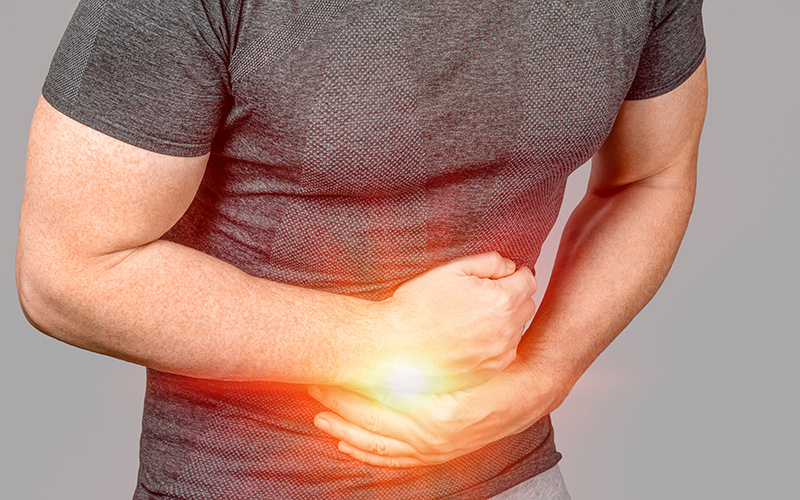
Acupuncture has been explored as a potential treatment for various bowel problems, including irritable bowel syndrome (IBS), constipation, and inflammatory bowel diseases (IBD) such as Crohn's disease and ulcerative colitis. While research on acupuncture's effectiveness for bowel problems is ongoing, some studies suggest that it may offer benefits for symptom management and improving overall well-being.
For individuals with IBS, acupuncture has shown promise in reducing symptoms such as abdominal pain, bloating, diarrhoea, and constipation. By targeting specific acupoints related to the digestive system, acupuncture may help regulate bowel function and alleviate discomfort. Additionally, acupuncture's ability to modulate the autonomic nervous system and reduce stress levels may be particularly beneficial for individuals with IBS, as stress is known to exacerbate symptoms.
In cases of chronic constipation, acupuncture may stimulate peristalsis, the wave-like contractions of the intestines that propel food and waste through the digestive tract. By promoting bowel movements and relieving intestinal stagnation, acupuncture can help alleviate constipation and improve bowel regularity. This approach offers a non-invasive and drug-free alternative to conventional laxatives, which may have side effects or long-term consequences.
Furthermore, acupuncture has been studied as a complementary therapy for individuals with inflammatory bowel diseases like Crohn's disease and ulcerative colitis. While acupuncture alone is unlikely to replace standard medical treatments such as medication or surgery for managing these conditions, it may help reduce inflammation, alleviate symptoms, and improve quality of life when used in conjunction with conventional therapies. Acupuncture's anti-inflammatory effects, along with its ability to modulate the immune system and promote relaxation, make it a potentially valuable addition to the treatment regimen for individuals with IBD.
Overall, while more research is needed to fully understand acupuncture's role in treating bowel problems, preliminary evidence suggests that it may offer benefits for symptom management, bowel function, and overall well-being. As with any medical intervention, it's essential for individuals with bowel problems to work closely with qualified healthcare professionals to develop a comprehensive treatment plan tailored to their specific needs and circumstances.
-
Emotional problems
Anxiety, depression, stress, and mood disorders treated with...

Acupuncture has been increasingly recognized as a complementary therapy for addressing emotional problems such as anxiety, depression, stress, and mood disorders. Rooted in Traditional Chinese Medicine (TCM), acupuncture views emotional health as closely intertwined with the balance of qi, or vital energy, within the body. By stimulating specific acupoints along the body's meridian pathways, acupuncture aims to restore harmony and balance to the mind-body-spirit connection.
Research suggests that acupuncture may offer several mechanisms through which it can positively impact emotional well-being. One of the key ways acupuncture influences emotional health is by regulating the release of neurotransmitters such as serotonin, dopamine, and endorphins. These neurotransmitters play essential roles in mood regulation, stress response, and emotional processing. By promoting the release of these feel-good chemicals, acupuncture can help alleviate symptoms of anxiety and depression while promoting relaxation and emotional resilience.
Moreover, acupuncture may help regulate the hypothalamic-pituitary-adrenal (HPA) axis, which is involved in the body's stress response. Chronic stress can dysregulate the HPA axis, leading to imbalances in cortisol levels and contributing to mood disorders and anxiety. Acupuncture has been shown to modulate the HPA axis, reducing stress hormone levels and promoting a sense of calm and well-being.
Additionally, acupuncture's holistic approach to health and healing addresses not only the symptoms but also the underlying imbalances contributing to emotional problems. By considering the individual's unique constitution, lifestyle factors, and emotional triggers, acupuncture treatments can be tailored to address the root causes of emotional distress, fostering long-term emotional resilience and well-being.
While acupuncture can be a valuable tool for managing emotional problems, it is essential to recognize that it is not a standalone treatment for severe or complex mental health conditions. Instead, acupuncture is most effective when integrated into a comprehensive treatment plan that may include psychotherapy, medication, lifestyle modifications, and other supportive therapies. Additionally, it's crucial for individuals seeking acupuncture for emotional concerns to work with qualified practitioners who have experience in treating mental and emotional health issues. By combining acupuncture with other evidence-based approaches, individuals can enhance their emotional resilience, improve their coping skills, and cultivate greater overall well-being.
-
Skin
Acupuncture's effects on skin health are not fully understood, however...

While the exact mechanisms underlying acupuncture's effects on skin health are not fully understood, research suggests that it may offer several benefits for improving skin conditions and overall well-being.
One way acupuncture may benefit skin health is by modulating the body's immune response and reducing inflammation. Inflammatory skin conditions such as eczema and psoriasis are characterized by immune system dysfunction and chronic inflammation. Acupuncture has been shown to have anti-inflammatory effects, which can help alleviate skin redness, itching, and irritation associated with these conditions. By promoting a balanced immune response, acupuncture may also help prevent flare-ups and reduce the severity of symptoms over time.
Moreover, acupuncture's ability to regulate the body's stress response may play a role in improving skin health. Stress is known to exacerbate many skin conditions, triggering inflammatory responses and disrupting the skin's natural barrier function. Acupuncture promotes relaxation and stress reduction by stimulating the release of endorphins and other neurotransmitters, which can help alleviate stress-related symptoms and improve overall skin health.
Additionally, acupuncture may improve circulation and blood flow to the skin, delivering oxygen and nutrients essential for skin regeneration and repair. By enhancing microcirculation, acupuncture can promote the elimination of toxins and metabolic waste products from the skin, supporting its natural detoxification processes. Improved blood flow can also help nourish the skin from within, leading to a healthier complexion and improved skin texture.
While acupuncture is not a standalone treatment for skin problems, it can complement conventional dermatological therapies by addressing underlying imbalances and promoting overall well-being. Integrating acupuncture into a comprehensive treatment plan that includes skincare regimens, dietary modifications, and lifestyle changes may enhance the effectiveness of treatment and support long-term skin health. As with any medical intervention, individuals seeking acupuncture for skin conditions should consult with qualified practitioners who have experience in treating dermatological issues to ensure safe and effective care.
-
Gastrointestinal Issues
gGastrointestinal (GI) problems, including acid reflux, irritable bowel syndrome (IBS)...
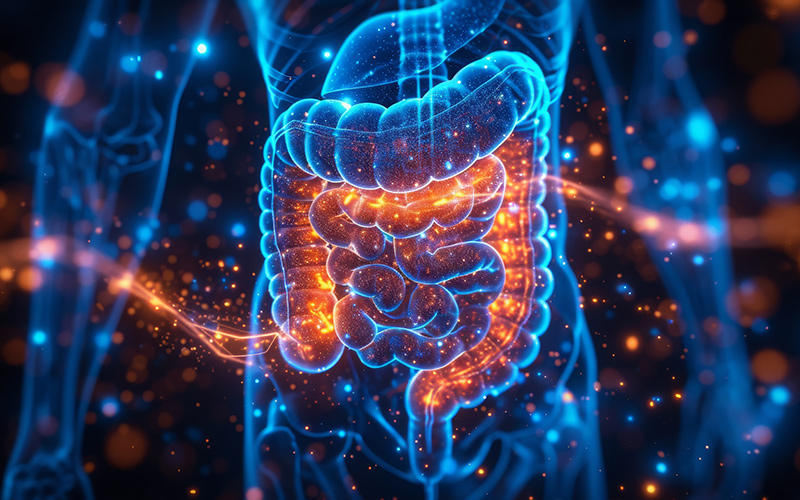
Acupuncture has shown promise as a complementary therapy for various gastrointestinal (GI) problems, including acid reflux, irritable bowel syndrome (IBS), gastritis, and inflammatory bowel diseases (IBD) like Crohn's disease and ulcerative colitis. While the exact mechanisms by which acupuncture exerts its effects on GI health are not fully understood, research suggests several ways in which it may benefit individuals with these conditions.
One of the primary ways acupuncture may improve GI health is by modulating the gut-brain axis, the bidirectional communication pathway between the gut and the central nervous system. Disorders of the gut-brain axis, characterized by dysregulation of gut motility, visceral sensitivity, and immune function, are implicated in many GI disorders. Acupuncture has been shown to influence neural pathways involved in gut function and visceral pain perception, helping to restore balance and alleviate symptoms such as abdominal pain, bloating, and diarrhoea.
Moreover, acupuncture's anti-inflammatory effects may play a role in managing GI conditions characterized by chronic inflammation, such as Crohn's disease and ulcerative colitis. By reducing pro-inflammatory cytokines and promoting the release of anti-inflammatory mediators, acupuncture can help alleviate intestinal inflammation and support the healing of mucosal damage. This may lead to improvements in symptoms such as abdominal cramping, diarrhoea, and rectal bleeding in individuals with IBD.
Additionally, acupuncture may help regulate gastric acid secretion and improve gastrointestinal motility, making it beneficial for conditions like acid reflux and functional dyspepsia. By stimulating specific acupoints related to the stomach and digestive organs, acupuncture can promote smoother digestion, reduce acid reflux episodes, and alleviate symptoms such as heartburn and indigestion.
While acupuncture can be a valuable adjunct therapy for managing GI problems, it is essential to integrate it into a comprehensive treatment plan that may include dietary modifications, lifestyle changes, and conventional medical therapies. Individuals with GI conditions should work closely with qualified healthcare providers to develop a personalized treatment approach that addresses their specific needs and concerns. As with any medical intervention, acupuncture for gastrointestinal problems should be administered by trained practitioners experienced in treating digestive disorders to ensure safe and effective care.
-
Prostrate & Sexual Dysfunction
A complementary therapy for addressing prostate and sexual dysfunction issues...

Acupuncture has gained attention as a potential complementary therapy for addressing prostate and sexual dysfunction issues, including benign prostatic hyperplasia (BPH), erectile dysfunction (ED), and premature ejaculation (PE). While research on acupuncture's effectiveness for these conditions is ongoing, some studies suggest that it may offer benefits for symptom management and improving overall sexual health.
In cases of benign prostatic hyperplasia (BPH), acupuncture may help alleviate urinary symptoms such as frequent urination, urinary urgency, and incomplete bladder emptying. By targeting specific acupoints related to the bladder and urinary system, acupuncture can help regulate urinary function, reduce inflammation, and improve blood flow to the prostate gland. This can lead to symptom relief and improved quality of life for individuals with BPH.
Moreover, acupuncture has been explored as a potential treatment for erectile dysfunction (ED), a common condition characterized by difficulty achieving or maintaining an erection sufficient for sexual intercourse. Acupuncture may help improve erectile function by enhancing blood flow to the genital area, reducing stress and anxiety related to performance, and addressing underlying imbalances contributing to ED. Some studies suggest that acupuncture may be particularly beneficial for individuals with ED caused by psychological factors or underlying health conditions such as diabetes or cardiovascular disease.
Additionally, acupuncture may offer benefits for premature ejaculation (PE), a condition characterized by uncontrollable ejaculation occurring shortly after penetration or before desired by both partners. Acupuncture can help regulate the nervous system, enhance serotonin levels, and improve ejaculatory control, leading to increased sexual satisfaction and improved sexual performance. By addressing both physical and psychological factors contributing to PE, acupuncture offers a holistic approach to managing this common sexual dysfunction.
While acupuncture can be a valuable adjunct therapy for prostate and sexual dysfunction, it is essential to integrate it into a comprehensive treatment plan that may include lifestyle modifications, dietary changes, and conventional medical interventions. Individuals experiencing prostate or sexual health issues should consult with qualified healthcare providers to develop a personalized treatment approach that addresses their specific needs and concerns. As with any medical intervention, acupuncture for prostate and sexual dysfunction should be administered by trained practitioners experienced in treating these conditions to ensure safe and effective care.
-
Gynaecology Problems
One area where acupuncture has shown promise is in managing menstrual...
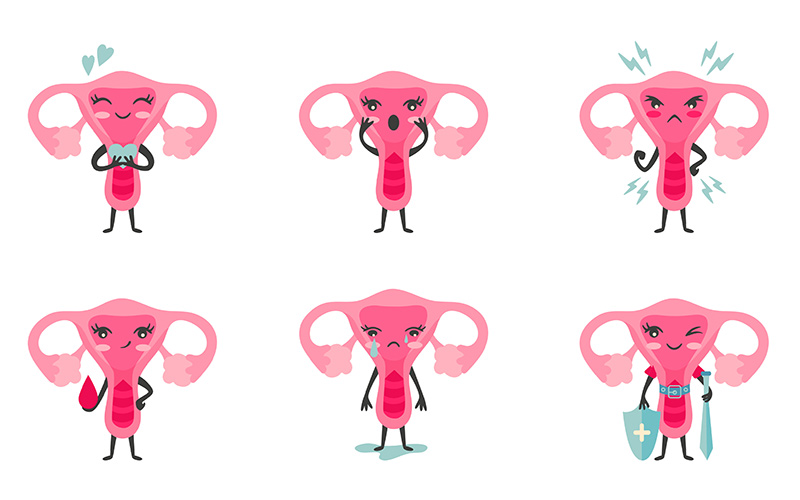
One area where acupuncture has shown promise is in managing menstrual disorders such as irregular periods, painful periods (dysmenorrhea), and heavy menstrual bleeding (menorrhagia). By regulating hormonal levels, reducing inflammation, and promoting blood circulation to the pelvic organs, acupuncture can help alleviate menstrual pain and discomfort while restoring regular menstrual cycles. Additionally, acupuncture's stress-reducing effects may help mitigate emotional symptoms associated with menstrual disorders, such as mood swings and irritability.
Furthermore, acupuncture has been studied as a potential treatment for infertility, both as a standalone therapy and in conjunction with assisted reproductive techniques such as in vitro fertilization (IVF). Acupuncture may improve fertility by enhancing blood flow to the uterus and ovaries, regulating hormonal balance, and reducing stress levels, which can impact reproductive function. Some research suggests that acupuncture may increase the success rates of fertility treatments and improve outcomes for couples undergoing IVF or intrauterine insemination (IUI).
Moreover, acupuncture can offer relief from menopausal symptoms such as hot flashes, night sweats, insomnia, and mood swings. By modulating hormone levels, promoting relaxation, and reducing stress, acupuncture can help alleviate menopausal discomfort and improve quality of life for women experiencing menopause transition. Acupuncture's holistic approach to health and healing addresses the underlying imbalances contributing to menopausal symptoms, offering a natural and non-invasive alternative or complement to hormone replacement therapy (HRT).
While acupuncture can be a valuable adjunct therapy for gynaecological problems, it is essential to integrate it into a comprehensive treatment plan that may include lifestyle modifications, dietary changes, and conventional medical interventions. Women experiencing gynaecological issues should consult with qualified healthcare providers, including gynecologists and licensed acupuncturists, to develop a personalized treatment approach that addresses their specific needs and concerns. As with any medical intervention, acupuncture for gynaecological problems should be administered by trained practitioners experienced in treating women's health conditions to ensure safe and effective care.
-
Urinary problems
Various urinary problems, including urinary incontinence, overactive bladder, urinary tract...

Acupuncture has shown promise as a complementary therapy for various urinary problems, including urinary incontinence, overactive bladder, urinary tract infections (UTIs), and interstitial cystitis. Rooted in Traditional Chinese Medicine (TCM), acupuncture aims to restore balance and harmony to the body's energy flow, known as qi, which is believed to play a crucial role in urinary health.
One area where acupuncture has demonstrated effectiveness is in managing urinary incontinence, a common condition characterized by involuntary leakage of urine. Acupuncture may help strengthen the pelvic floor muscles, improve bladder control, and regulate urinary function by stimulating specific acupoints related to the bladder, kidneys, and pelvic area. By enhancing neuromuscular function and promoting relaxation, acupuncture can help reduce episodes of urinary leakage and improve quality of life for individuals with urinary incontinence.
Moreover, acupuncture has been studied as a potential treatment for overactive bladder (OAB), a condition characterized by frequent and urgent urination. Acupuncture may help modulate the nervous system, reduce bladder hyperactivity, and increase bladder capacity, leading to a reduction in urinary urgency and frequency. By addressing both the physical and emotional factors contributing to OAB, acupuncture offers a holistic approach to managing this challenging condition.
Additionally, acupuncture can be beneficial for individuals prone to recurrent urinary tract infections (UTIs). By strengthening the immune system, promoting urinary tract health, and balancing the body's energy flow, acupuncture may help prevent UTIs and reduce the frequency of recurrent infections. Some research suggests that acupuncture may also help alleviate symptoms such as pain, burning, and urgency associated with UTIs, offering relief for individuals experiencing acute episodes.
Furthermore, acupuncture may offer benefits for interstitial cystitis (IC), a chronic inflammatory condition of the bladder characterized by pelvic pain, urinary urgency, and frequency. Acupuncture's anti-inflammatory effects, along with its ability to modulate pain perception and promote relaxation, can help alleviate symptoms and improve quality of life for individuals with IC. By addressing the underlying imbalances contributing to IC, acupuncture offers a natural and non-invasive approach to managing this challenging condition.
While acupuncture can be a valuable adjunct therapy for urinary problems, it is essential to integrate it into a comprehensive treatment plan that may include lifestyle modifications, dietary changes, and conventional medical interventions. Individuals experiencing urinary issues should consult with qualified healthcare providers to develop a personalized treatment approach that addresses their specific needs and concerns. As with any medical intervention, acupuncture for urinary problems should be administered by trained practitioners experienced in treating urological conditions to ensure safe and effective care.
-
Insomnia
One way acupuncture may benefit individuals with insomnia is...
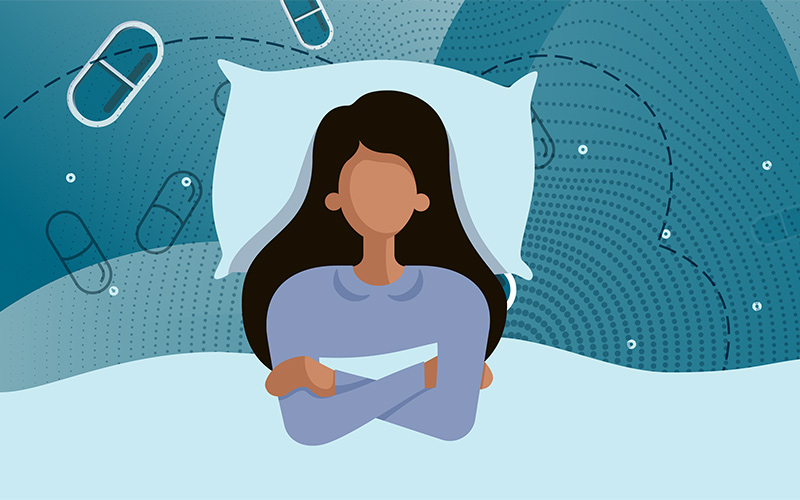
One way acupuncture may benefit individuals with insomnia is by promoting relaxation and reducing stress levels. By stimulating specific acupoints along the body's meridian pathways, acupuncture can help regulate the autonomic nervous system, which controls the body's stress response. This can lead to a reduction in stress hormones such as cortisol and an increase in the release of endorphins and other neurotransmitters that promote relaxation and restful sleep.
Moreover, acupuncture may help address underlying imbalances in the body that contribute to insomnia, such as hormonal disturbances, circadian rhythm disruptions, and emotional stressors. Acupuncture treatments are tailored to the individual's specific patterns of sleep disturbance, taking into account factors such as sleep onset insomnia, sleep maintenance insomnia, and early morning awakening. By addressing these underlying imbalances, acupuncture can help regulate sleep-wake cycles and improve sleep quality over time.
Additionally, acupuncture's holistic approach to health and healing considers the interconnectedness of body, mind, and spirit in promoting overall well-being. Acupuncture treatments often incorporate lifestyle recommendations, dietary adjustments, and relaxation techniques to support better sleep hygiene and promote a conducive environment for restorative sleep. By addressing both the physical and emotional aspects of insomnia, acupuncture offers a comprehensive approach to managing sleep disturbances and improving overall sleep quality.
While acupuncture can be a valuable adjunct therapy for insomnia, it is essential to integrate it into a comprehensive treatment plan that may include cognitive-behavioral therapy for insomnia (CBT-I), sleep hygiene practices, and, in some cases, medication. Individuals experiencing chronic insomnia or underlying medical conditions should consult with qualified healthcare providers to develop a personalized treatment approach that addresses their specific needs and concerns. As with any medical intervention, acupuncture for insomnia should be administered by trained practitioners experienced in treating sleep disorders to ensure safe and effective care.
Acupuncture The Research
Wath the Video
Clients Feedback
Customer testimonials serve as powerful endorsements for businesses, products, or services. They are like golden nuggets of feedback that businesses cherish and proudly showcase. These testimonials are expressions of satisfaction, gratitude, and sometimes even astonishment from real customers who have experienced the value and quality of what a business offers. Whether it's a heartfelt thank you note, a glowing review, or a detailed account of a positive experience, testimonials provide social proof and credibility. They reassure potential customers, alleviate doubts, and help in building trust. In the digital age, customer testimonials often take center stage on websites, social media platforms, and marketing materials, serving as beacons of authenticity in an ocean of promotional content. Each testimonial is a testament to the relationship between a business and its customers, highlighting the tangible impact it has made in their lives.
-
Vicki Blair introduced me to Acupuncture. She carefully and meticulously explained the benefits of Chinese medicine and went through the procedures and application in a clear and precise way. I had been suffering from acute lower back pain for months, diagnosed as severe Stenosis. Vicki’s treatment was painless yet soothing and relaxing. She has a gentle touch with calmness and tranquillity throughout the treatment. My pain was instantly relieved and I left convinced that regular acupuncture treatments give very good results in a natural yet sustaining environment. .
Kevin Walkers
Esher -
Vicki has treated me for knee and shoulder pain and stiffness. I was so amazed and grateful for the immediate relief I experienced from the acupuncture!!.
Jessica Parker
Cobham -
I can highly suggest that for any musculoskeletal issues, go see Vicki. She also includes a 15 minute Indian head massage after each session. Bliss!
Gary G
Fulham -
I had the pleasure of being treated by Vicki and I must say, she's absolutely brilliant! Vicki helped me immensely in balancing my body, reducing excessive sweating, and improving digestion. Her approach was not only professional but also warm and friendly, making every session comfortable and enjoyable. Vicki seemed to work miracles!! I wouldn't hesitate to use her services again in the future.
Natalia B
London -
Hello Vicki
Well I don’t know which pathways you cleared but I played a better game of golf today than I have for weeks! And also feel so much more energised. It was lovely to meet you yesterday and thank you for your administrations. I have found the booklet about Bach Remedies written by my father and will bring it with me next time. With many thanksAngela
Frequently Asked Questions
What is acupuncture?
It is a non-invasive drug free treatment used for many health issues. Very thin needles are strategically inserted to stimulate the Central Nervous System. This in turn releases chemicals into the muscles, spinal cord, and brain. Biochemical changes will stimulate the body’s natural healing abilities and will promote physical and emotional well-being. In the study of traditional Chinese Medicine, applied for over 2000 years, practitioners aim to bring the body into balance, homeostasis. The strategic insertions of acupuncture needles into meridians will balance the flow of blood and energy (or life force,) known as Qi (chee) which flows through the meridians in your body.
Booking an appointment?
The first appointment includes a comprehensive confidential medical history and a treatment and this can last up to 1.5 hours. Subsequent appointments should only last for 1 hour. Each treatment is tailored to your individual needs. I advise each patient to have a series of at least 6 treatments.
How do you charge for treatments?
Initial consultation: £60.00
Follow ups: £50.00
Book An Appointment
House calls for exceptional circumstances only. Always happy to chat about your health concerns.
-
Address:
Cobham Surrey KT
-
Phone:
+44 0797 1170 066
-
Social:
